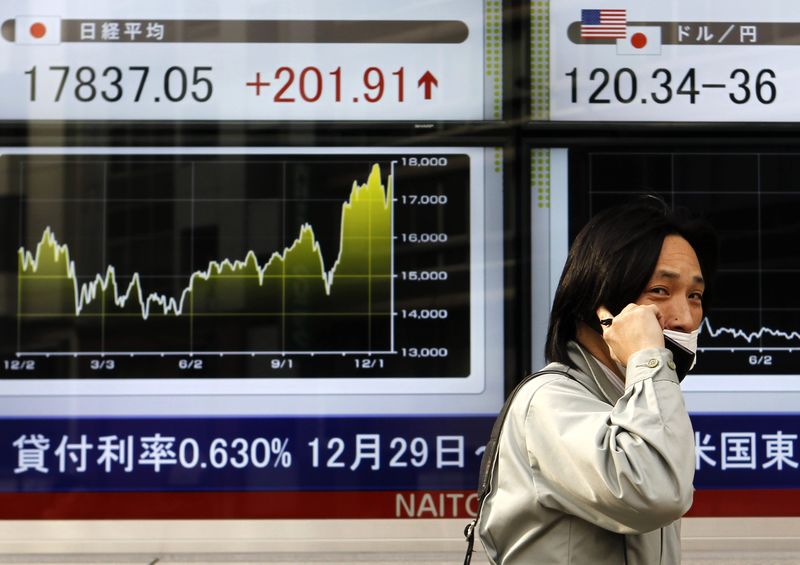By Shinichi Saoshiro
TOKYO (Reuters) - Asian stocks extended a global rally on Friday after the European Central Bank launched a landmark bond-buying stimulus program that buoyed investors' risk appetite, drove bonds higher and kept the euro pinned near 11-year lows.
Spreadbetters expect Europe to retain the previous session's sunny mood, forecasting Britain's FTSE to open up by as much as 0.3 percent, Germany's DAX up 0.5 percent and France's CAC 0.7 percent higher.
Crude oil prices bounced after Saudi Arabia announced that King Abdullah had died and his successor, Salman, moved quickly to name his own heir to rule the world's biggest oil exporter. U.S. crude rose 85 cents to $47.16 a barrel.
The Saudi king's death added to longer-term uncertainty in energy markets already facing some of the biggest shifts in decades. [O/R]
"The fear of the unknown is going to be supportive to crude oil prices," said John Kilduff, partner, Again Capital LLC in New York. "King Abdullah was the architect of the current strategy to keep production high and force out smaller players instead of cutting (output)."
The ECB took the ultimate leap into quantitative easing on Thursday, launching a government bond-buying program which will pump hundreds of billions of new money into a sagging euro zone economy.
European shares surged, German stocks hit record highs and euro zone bonds rallied, while German government bond yields slid to new record lows. The euro plummeted, bringing parity with the dollar in sight.
On Wall Street, the S&P 500 and the Dow each gained 1.5 percent overnight.
Lifted by the global surge in equities, MSCI's broadest index of Asia-Pacific shares outside Japan rose to an eight-week high and was last up 0.9 percent.
Japan's Nikkei gained 1 percent and Australian and South Korean shares also made sizeable gains. The Indonesian stock index rose to a record high.
"Although the risk-sharing aspect of the plan was a little disappointing, the quantitative easing scheme the ECB decided upon greatly exceeded market expectations. President Draghi proved he was indeed a 'Super Mario'," Yoshimasa Maruyama, senior economist at SMBC Nikko Securities, wrote in a client note.
Market reaction was limited to the HSBC flash PMI which showed China's manufacturing growth stalling for the second straight month in January. The survey also showed mounting deflationary pressures in China, which could reinforce expectations that authorities there will roll out more stimulus measures.
The euro shed 0.2 percent to $1.1344, not far from the 11-year trough of $1.1316 struck overnight and having shed nearly 2 percent this week. The common currency also fell to a three-month low of 134.28 yen.
The euro is gearing up for another trial as global markets await snap Greek elections on Jan. 25. A win by the leftist Syriza party, which has pulled ahead on opinion polls, could trigger a standoff with the EU/IMF lenders and drive Greece from the euro zone.
The dollar was up 0.1 percent at 118.60 yen. The greenback was on track to book a 0.8 percent gain on the week.

The Australian dollar fell to a 5-1/2 year low of$0.7980. The Aussie has been under pressure as a surprise rate cut by the Bank of Canada this week has raised expectations the Reserve Bank of Australia could soon follow suit.